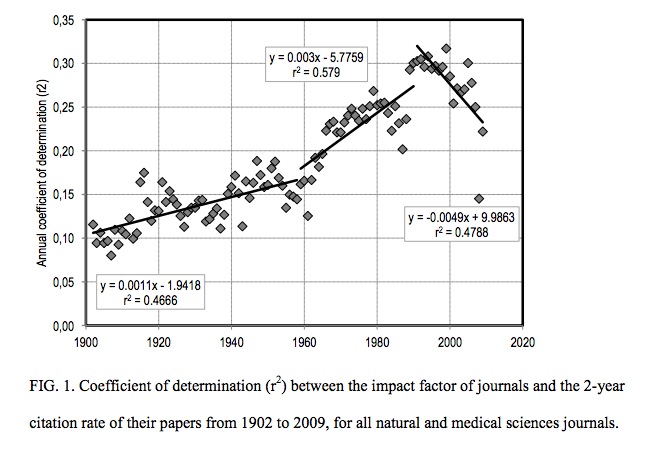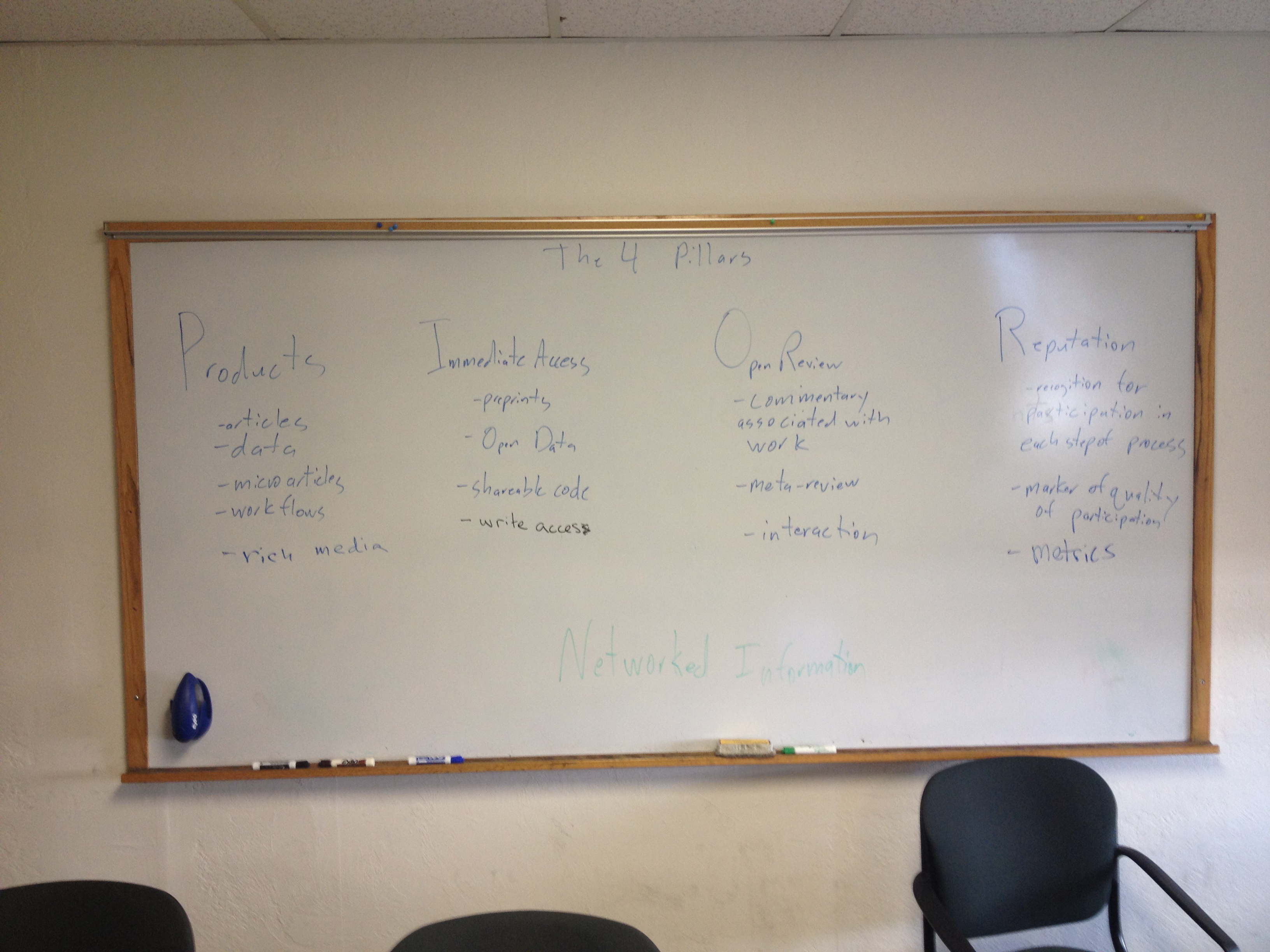Here is the SHERPA/RoMERO database on journal pre-print and archiving policies. Just enter a journal, and it gives you what their policy is listed as. However, it lists many journals as allowing pre-print archiving which we now see are not allowing it based on comments from their editors or societies (e.g., Ecology Letters or Evolution).
Author Archives: jebyrnes
Impact Factor and Citation Rate
Here’s an interesting piece from George Lozano showing that, while journal impact factor became an increasingly better predictor of citation rate of a paper until 1990, over the last two decades, that relationship has begun declining. Figure 1 (below) is particularly interesting.
A Discussion of Post-Publication Peer Review in EEB
I got asked to take part in this hangout a few weeks ago – no connection to our working group. My comments, though, are definitely heavily informed by what we talked about last week. I did make sure not to tip my hand, though! There’s a lot here, and it was interesting to see how three other young eco/evo types were pretty onboard with a lot of what we have been talking about.
(also, enjoy Lorie’s cameo banging)
TechCrunch on Peer Review and the Future of Publishing
Here are two that I fell across recently from Richard Price (the academica.edu founder at TechCrunch that are pretty in sync with our group
1) The Future of Peer Review – he outlines why crowd and social review may well be better than our current three two sometimes one person review system.
2) The Future of Science – Price pretty much arrives right where we are. Interesting.
Keep your eyes on F1000 research
It appears that F1000 research has added a number of new features since their initial announcement. They are still Gold (as in author pays) but, their current about blurb reads:
“F1000 Research is a new fully Open Access publishing program across biology and medicine, that will start publishing later this year. It is intended to address the major issues afflicting scientific publishing today: timely dissemination of research, peer review, and sharing of data. Diverging from traditional journal publishing, F1000 Research will offer immediate publication; open, post-publication peer review; open revisioning of work including ongoing updates; and encourage raw data deposition and publication. In addition, F1000 Research will accept a broad range of article formats and content types.”
(emphasis mine)
I’ll be very interested to see the final form this all takes. There’s no reputation economy associated, but, they appear to be firmly on the right track.
Thoughts?


